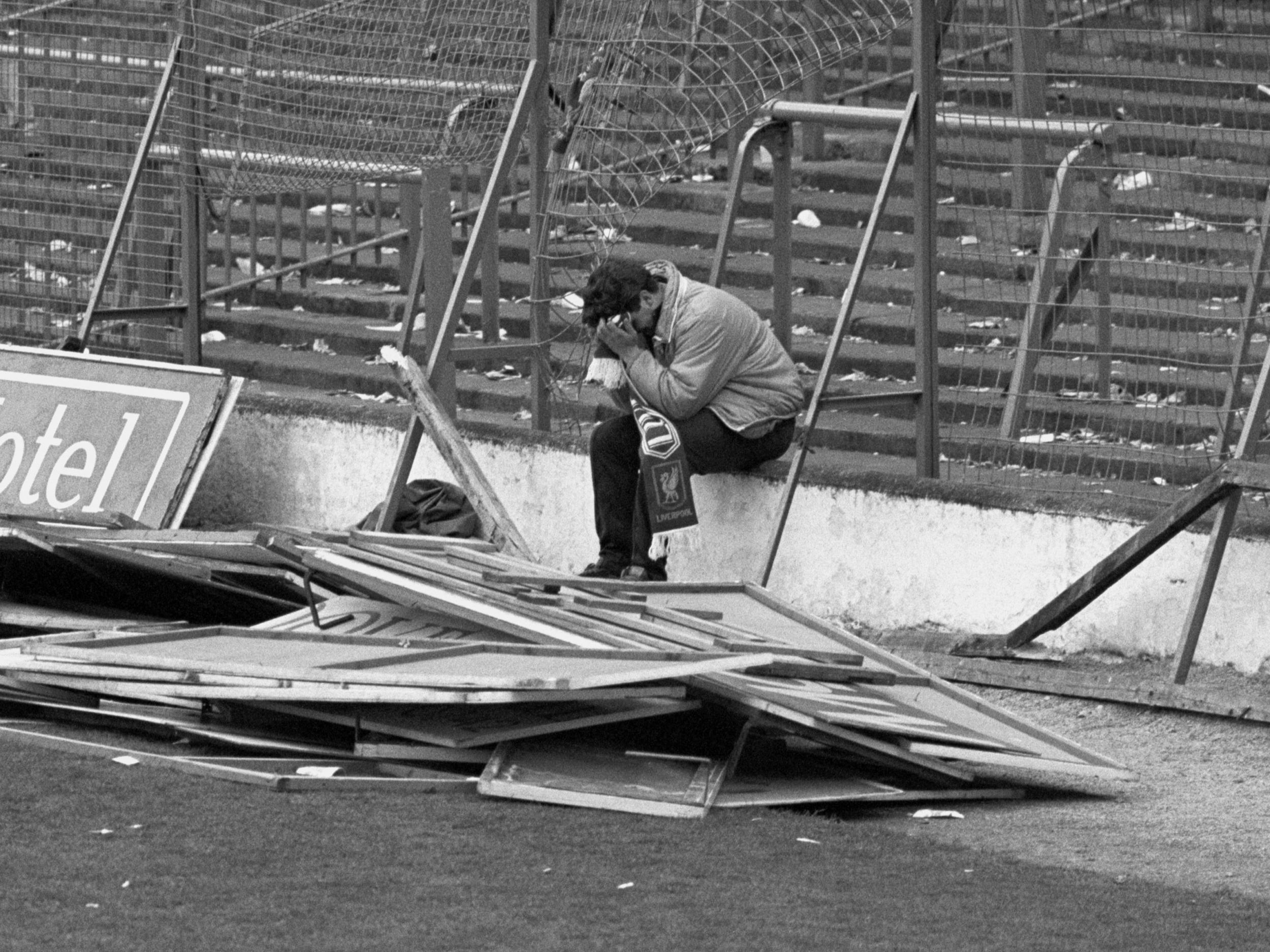Hillsborough anniversary: 30 years on, it remains in the national interest to pursue justice
An ugly equation blights British life: 96 + 30 = injustice. The time has come to find a different answer

Three decades. How do you quantify 30 years? It can be a blink of an eye in humanity’s story or, to young people, unimaginably ancient history. The Hillsborough families have measured it in tears, rejections, disappointment and pain.
Today, on the 30th anniversary of the disaster at the FA Cup semi-final between Liverpool and Nottingham Forest, there are still too many unanswered questions. What happens when civic employees entrusted with the public’s safety make catastrophic, avoidable mistakes? Is it in anyone’s interest to hold them responsible? Crushing at Sheffield Wednesday’s stadium killed 96 Liverpool supporters but Hillsborough is not, nor has ever been, about football or Merseyside. It is about trusting the authorities whenever you or a loved one go to concerts, spectator sports or any mass participation event.
One person, Graham Mackrell, the former Wednesday club secretary, was convicted earlier this month on a health and safety charge relating to the disaster. The jury were unable to reach a verdict on David Duckenfield, the match commander on the day who was charged with manslaughter by gross negligence. Another trial will need to take place. Three other men are scheduled in September to face charges of perverting the course of justice.
Now the saga enters its fourth decade. The effect on the families has been attritional. It never gets easier. Some suggested that sitting through the latest trial at Preston Crown Court was “worse than the original inquests,” the proceedings that produced an accidental death verdict in 1991.
The propaganda pumped out in the first two years after the disaster coloured public opinion. The Sun’s despicable ‘The Truth’ headline, falsely pointing the finger at Liverpool fans, set the tone. The coroner’s dismissive verdict was an official endorsement of the lies. The dead, their fellow supporters who tried to save them and the bereaved were dehumanised and dismissed with the complicity of the state.
Most of the British people were content to believe that drunken, ticketless fans and bad behaviour lay at the heart of the tragedy. It was not until 2012 that the Hillsborough Independent Panel (HIP) comprehensively destroyed that narrative. The second inquests vindicated the families and campaigners by overruling the original decision three years ago and confirming that the victims were unlawfully killed. Yet much ignorance still surrounds the subject.
More than 20 years of misinformation has had an effect. There are still Hillsborough deniers who are determined to ascribe guilt to Liverpool supporters. Most survivors have endured the experience of having someone whisper in their ear in a conspiratorial fashion: “Come on, admit it. We all know what football was like back then. I used to go. I know what it was like…” Many of us could give a recent example of such boorishness.
Even those who are sympathetic to the cause and accept the indisputability of the HIP and second inquest are bored with the subject. “You’ve won,” they say. “Everybody knows. Move on. What’s there to gain?” They are missing the point.
Is crucial that there is accountability and transparency in public life. At a time when members of the Government flippantly spread misinformation and lies because it suits their political viewpoint, the search for the truth is more important than ever. Just because something happened a long time ago does not mean it should be forgotten. If we ignore it, lessons do not get learnt.
Back in 1989 there should have been an airline-crash style investigation. It should have been detailed and forensic and its findings could have formed the framework for a new approach to safety and policing football and other public events. Those who made mistakes should have admitted their errors and taken responsibility. Structures should have been put into place to minimise the chances of anything like this ever happening again. It is in the national interest to pursue the quest for justice.
There is another reason, too: closure. Maligned, derided and sneered at, the families and campaigners have fought against seemingly insurmountable odds with dignity. They are tired. As much as anyone they want this to end. They have had to grieve not only for those who were lost on April 15, 1989, but for the mothers, fathers, family members and friends of the dead who have gone to their graves without seeing justice for their loved ones. The true death toll of Hillsborough is significantly higher than those who died at the Leppings Lane end.
An ugly equation blights British life: 96 + 30 = injustice. The time has come to find a different answer. This one shames us all.
Subscribe to Independent Premium to bookmark this article
Want to bookmark your favourite articles and stories to read or reference later? Start your Independent Premium subscription today.

Join our commenting forum
Join thought-provoking conversations, follow other Independent readers and see their replies